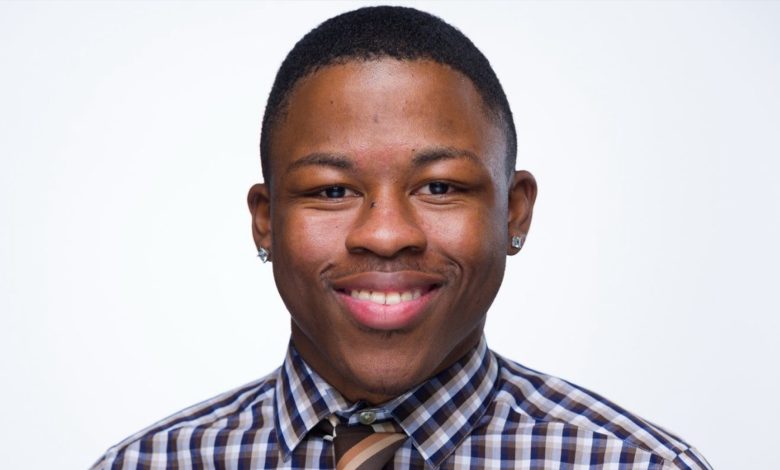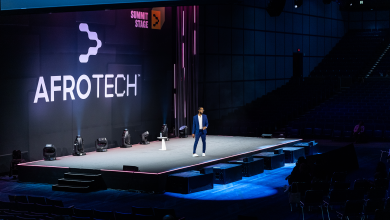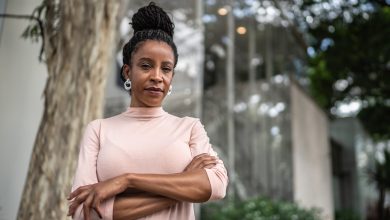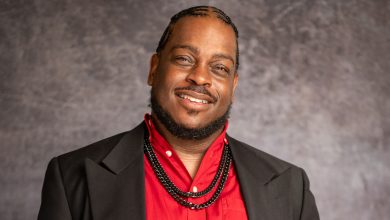This 24-Year-Old Built An AI-Powered Disaster Relief Platform After Experiencing A Snowstorm During Undergrad


“Don’t aspire to make a living, aspire to make a difference,” is a mantra from Denzel Washington that informs Joel Murchison’s efforts in technology.
The 24-year-old Atlanta native and Jackson State University student has always been fascinated with tech and would often discuss robotics with his stepfather, who entered his life at age 8. As the world continued to evolve, it was no surprise that Murchison would become fascinated with AI. Through its use, he was inspired to create a platform based on several catalysts, including a snowstorm that hit his college campus in 2021, during the spring semester of his freshman year. As a result of the storm, the campus lost access to clean drinking water — an issue that remained for several more semesters leading up to his senior year, according to Murchison.
He was also about five to six hours from home, so his family set him up in a motel.
“The roads were icy. You couldn’t be able to drive, and there was no access to food and water…,” Murchison told AFROTECH™. “Dealing with that was a very traumatic experience… That’s when my problem-solving, where I want to solve the world’s hardest problem, started to come about.”
RapidReliefAI
In March 2025, Murchison attended a HBCU Founders Initiative workshop at Mississippi Valley State University to create a solution around climate change, but he was challenged to think further about sustainability. The initiative, launched by Nex Cubed, supports students, alumni, and faculty from HBCUs who are interested in creating solutions to improve outcomes in health care, education, and financial services, according to its website.
This gave rise to RapidReliefAI, a disaster recovery platform that he founded a month later. Murchison taught himself to code with AI using Lovable to build a prototype, and being a student has afforded him discounts to keep costs low. He also signed up for courses with CodePath, including some from Harvard University on computer science.
“I would definitely say that AI changed my life. I’m a big advocate for AI. And I want to tell people, don’t be scared. Because when I first started the idea, I was a non-technical person,” he said.
RapidReliefAI aims to assist with disaster victim detection by deploying drones equipped with human and thermal sensing technology to help first responders locate and rescue victims.
“Let’s say a survivor is underneath a pile of rubble or rock because it’s an earthquake in California. Drones will be able to locate where that actual survivor is, and then that’s another life that we can be able to potentially save,” he explained. “The most lives are taken within the first 72 hours of a disaster. So our critical mission is to focus on saving as many lives as possible within the first 72 hours.”
From there, RapidReliefAI will further assist survivors by helping resolve pain points around the claims process. This is made possible through AI change detection, which can assess damage from disasters. A long-term goal is to partner with governments and insurance agencies that can use drone data to streamline and automate claims processes, such as damage documentation.
“What we’re using is AI change detection to analyze the damage before and after the disasters, things like floods in Houston or the hurricanes in New Orleans or the wildfires in California or the hurricane season in North Carolina, for instance, for infrastructure failures, where the AI compares visual data to spot change and damage created, and also creates instant reports that show where resources are needed most in a sense,” Murchison said. “So that way, it’s cutting out the manual processes for insurance claims adjusters.”
The drones aren’t currently being deployed, but he is working to integrate AI Smart Motion Detection into the drone with the help of student volunteers.
For now, the platform is being used to provide users with resources and education on disaster recovery and protocols to put in place before a disaster hits. With the help of AI, users will be taught how to complete the claim forms to receive the money they are due from insurance companies.
Looking ahead, Murchison will be co-hosting an event on Saturday, Nov. 15, in Alpharetta, GA, to bring more users onto the platform. This event is supported through a stipend for his active participation in the Google Data Center Community AI Fellowship, which is supported by Google and the Watson Institute.
Murchison is also a fellow of the Black Ambition Prize’s HBCU Pre-Accelerator Program.




